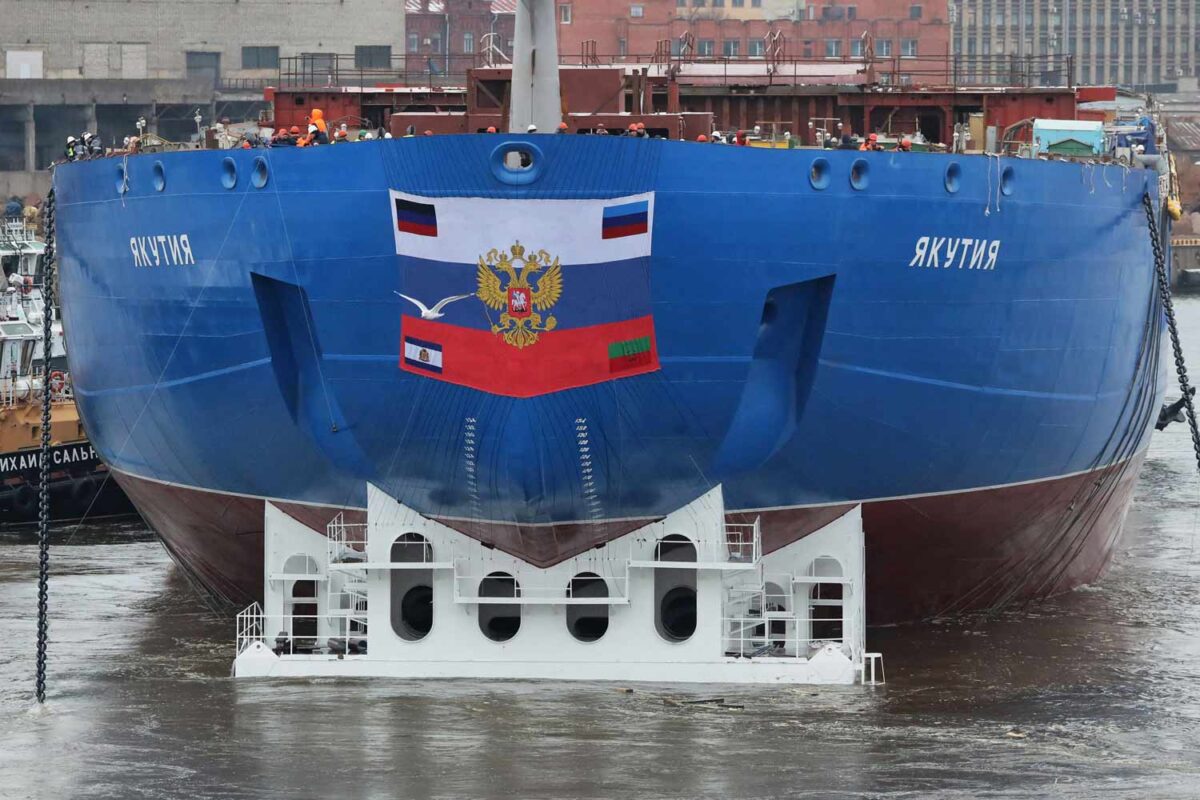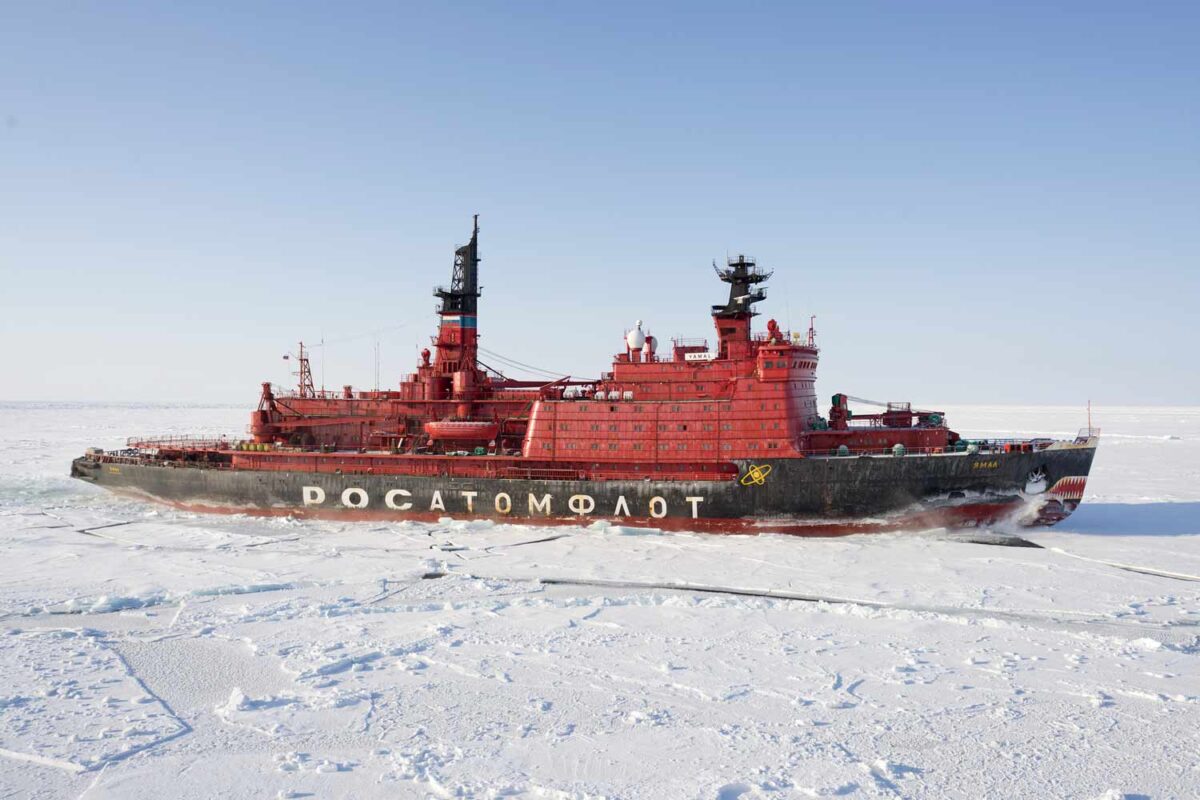Cargo ships have run off bunker fuel oil since at least as far back as the end of the Second World War. But now, with new environmental regulations set to come into effect, some shipbuilders are considering nuclear power as an alternative energy source.
Cargo shipbuilders are looking further afield when it comes to ways of propelling their giant hunks of steel around the world. The industry has changed remarkably little in the last hundred years, with most cargo ships running off oil.
However, as environmental regulations get more stringent and as green energy technology becomes better, nuclear power is becoming increasingly more viable as an option for powering cargo ships.
According to The Telegraph, some shipbuilding companies are experimenting with this already. The outlet reports that one ship, The Yakutia, enjoyed a crowd gathering to watch her launch. The Yakutia is a Russian vessel and one of a small number of nuclear-powered civilian ships.
According to Reuters, Putin said of The Yakutia and its ilk: “They are needed for the study and development of the Arctic, to ensure safe, sustainable navigation in this region, to increase traffic along the Northern Sea Route.”

Its job is to break ice in the Arctic, to ensure that shipping routes stay open for other boats. The Yakutia isn’t the only vessel powered by atomic action – according to Flexport, “Four countries have launched nuclear-powered merchant ships: America built the NS Savannah, a passenger-cargo ship; Germany built the Otto Hahn, which carried ore for nearly a decade; Japan built the Mutsu, which was decommissioned after a single test run; and Russia built the Sevmorput, which carried cargo until 2012.”
Though nuclear powered ships used to be the singular preserve of militaries and governments (fears about safety have mostly meant civilians haven’t been allowed or willing to dabble with nukes), the world’s largest shipbuilder (South Korea’s HD Hyundai) is apparently, potentially, about to change that.
The company’s chief executive Ki-sun told The Telegraph as much, saying: “We’re thinking of putting nuclear into a ship for a zero carbon shipping future.”
Also according to The Telegraph, an employee of Lloyd’s Register’s, an industry body that helps set safety standards in the shipbuilding industry, Hyundai are not alone in this ambition.
“At the present time there are a number of organisations looking at nuclear in the marine space for both shipping and offshore applications.”
Mark Tipping of Lloyd’s Register’s
If this ambition succeeds, it won’t be so simple as just changing fuel sources. Crew will have to be retrained, engineers will have to be enticed to go live at see; a whole raft of things will need to change.
There will be advantages though: not only will emissions be reduced (something particularly important in parts of the world like the Arctic) but ships will have to stop and refuel much less frequently. That being said the consequences of a nuclear f**k up on a civilian ship would be disastrous. So for the time being, companies are primarily experimenting with non-nuclear fuel sources like liquefied natural gas, methane and ethanol, among others. Some are also having a crack at hydrogen-burning engines.

Suffice to say: it’s not happening yet, but plans are in the works for it to start. Speaking to this, Martime Executive reports that research conducted at a Dutch technical university found nuclear energy could be applied as marine propulsion in the future.
Per Maritime Executive: “The research identified large ocean-going vessels as having the most potential for nuclear propulsion. By creating four different concepts (bulk, container, tanker, and offshore), key items were analyzed, including the mass and volume of the energy storage and power generation system. It shows that, even though the shield around the reactor is a significant portion of the respective mass and volume of the nuclear power generation system, in most cases, the nuclear option is lighter and more compact than the conventional marine diesel option.”
“Compared to conventional fuel-based systems, the research highlights that there can be up to a 98 percent reduction in CO2 emissions. Furthermore, the air pollution emissions, such as SOx, PM, and NOx, are eliminated.”
Maritime Executive
There you have it. It could kill us but it could also save us. Food for thought. And one to mull over on your next carbon-intensive flight…
Read Next- Dramatic Moment As 43 Metre Superyacht Crashes In The Caribbean
- Roman Emperor’s ‘Floating Palace’ Puts Today’s Superyachts To Shame
The post Cargo Shipbuilders Exploring Nuclear Power As Alternative Fuel Source appeared first on DMARGE Australia.
0 Commentaires